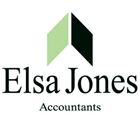Are you trading?

Lockdown restrictions have forced many businesses to close temporarily. Selling goods or clothes on sites such as eBay and Depop offers the opportunity to raise some much needed cash in these difficult times.
What are the associated tax implications and do you need to tell HMRC about it?
Badges of trade
There is a difference between occasionally selling an unwanted item and running an online business. When selling items online, it is necessary to consider whether you are actually trading. The courts have looked to the ‘badges of trade’ to answer this question. These are indicators that taken together provide an overall impression as to whether a trade exists.
The badges of trade are as follows:
- profit-seeking motive — an intention to make a profit indicates trading;
- the number of transactions – systematic and repeated transactions indicate trading;
- the nature of the asset – an asset that it can only be turned to an advantage by sale suggest trading;
- existence of similar trading transactions or interests – transactions that are similar to those of an existing trade may themselves be trading;
- changes to the asset –repairing, modifying or improving the asset to make it more easily saleable or saleable at a greater profit indicates trading;
- the way the sale was carried out – selling the asset in a way typical of trading organisations suggests trading;
- source of finance – selling the asset to repay funds borrowed to purchase it may indicate trading;
- interval of time between purchase and sale – a short interval of time between purchase and sale may indicate trading;
- method of acquisition – assets acquired by inheritance or as a gift are less likely to suggest trading.
There is no single overriding factor that provides conclusive proof that a person is trading; it is more a question of forming an overall impression by considering the badges of trade.
Trading allowance
Even if the sale of goods amounts to a trade, it not always necessary to tell HMRC about it, or pay tax on any profits.
The trading income allowance removes the need to tell HMRC about trading income where the gross annual income from one or more trades is £1,000 or less for the tax year. If you are self-employed and sell goods on eBay as a side line, it is not possible to use the trading allowance for the side line if income from your main trade is more than £1,000 and you must report both to HMRC.
What to tell HMRC
If your gross income from all trades that you carry out is more than £1,000, you must tell HMRC about your income and expenses on your self-assessment tax return (registering for self-assessment first if you are not already registered).
In working out your profit you can either deduct expenses wholly and exclusively incurred in connection with the trade or, if more beneficial, the £1,000 trading allowance. Deducting the allowance will generally be more beneficial if expenses are less than £1,000. However, as the deduction of the allowance cannot create a loss, if after deducting actual expenses there is a loss, it is better to deduct the actual expenses rather than the allowance so you can benefit from the associated loss relief.
If your profits are high enough, you may also need to pay Class 2 and Class 4 National Insurance contributions. For 2020/21, you will need to pay Class 2 National Insurance if you profits from self-employment are more than £6,475 and Class 4 if your profits are more than £9,500.
